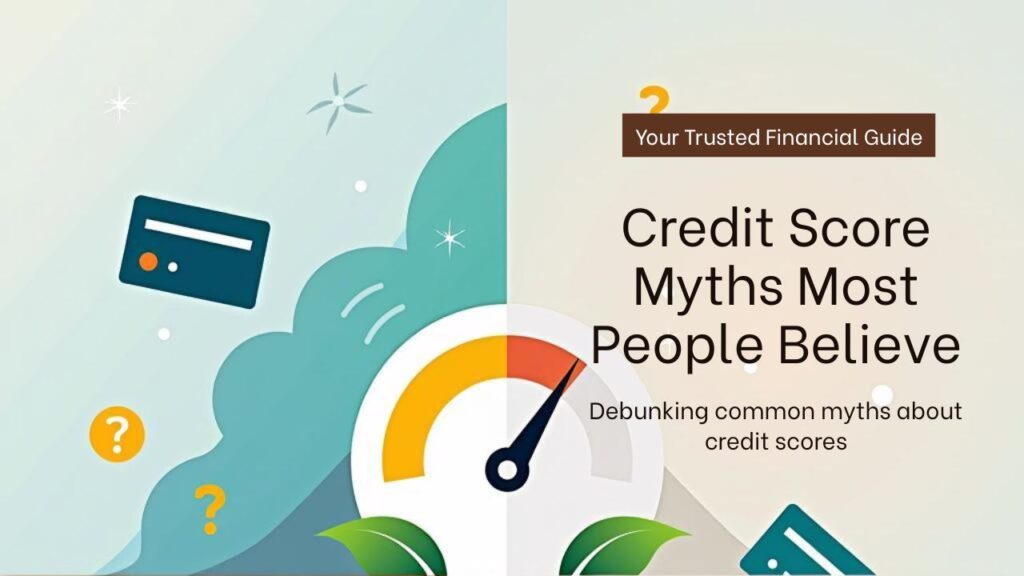Credit Score Myths Most People Believe

Your credit score can shape your financial life — from loans to job offers.
But so many people still believe outdated myths. Let’s bust them once and for all.
🧨 Top 7 Credit Score Myths (2025 Edition)
❌ Myth #1: Checking your credit score lowers it
Truth: Soft inquiries (like checking your score) do not hurt your score.
Only “hard pulls” (like applying for a loan) affect it.
❌ Myth #2: Carrying a balance improves your score
Truth: You should pay off your full balance every month. Carrying a balance = interest waste, not a boost.
❌ Myth #3: You only have one credit score
Truth: You have multiple scores (FICO, VantageScore) depending on who pulls it and which bureau they use.
❌ Myth #4: Paying off a loan hurts your score
Truth: Your score might dip temporarily due to credit mix change, but it’s good long-term.
❌ Myth #5: You need a credit card to build credit
Truth: Not true anymore. You can now build credit with:
- Rent reporting apps
- Secured loans
- Experian Boost
❌ Myth #6: Closing old cards boosts your score
Truth: No! That reduces your credit age and increases utilization rate.
❌ Myth #7: Income affects your score
Truth: Your salary is not included in your credit score. It matters for loans, but not for your FICO.
🎯 Final Tip:
Credit scores are about habits, not hacks.
- Always pay on time
- Keep usage <30%
- Monitor your report regularly (Credit Karma, AnnualCreditReport.com)
Credit Score Myths Most People Believe – FAQ
❓ What is a good credit score in 2025?
A FICO score of 670 or above is considered good. 740+ is very good, and 800+ is excellent.
❓ How often does my credit score update?
Usually every 30–45 days, depending on your lenders’ reporting cycle.
❓ Does using a debit card build credit?
No. Only credit cards, loans, or reported rent/utility payments help build credit history.
❓ Is it okay to have multiple credit cards?
Yes — just use them wisely and keep utilization low. It can boost your score by improving your credit limit and mix.
❓ What hurts your credit the most?
- Missed payments
- High credit utilization
- Too many hard inquiries
- Defaulted loans


